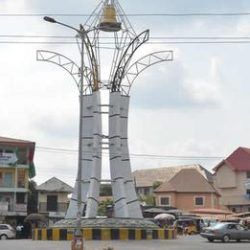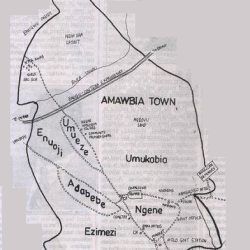Amawbia ia a town in Anambra State of Nigeria.
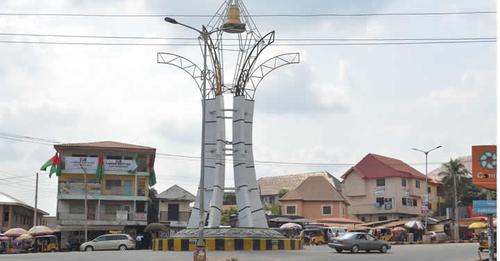
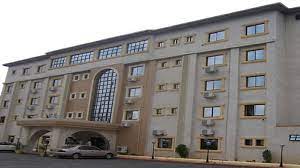
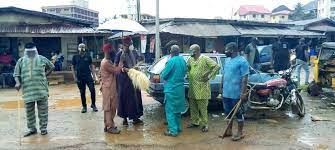
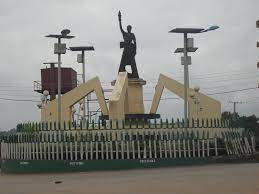
The town has six villages: Umueze, Ngene, Adabebe, Umukabia, Ezimezi and Enu-oji.
Awofia according to oral tradition was the founder of Amawbia.
From time immemorial, Amawbia had been an automatons community, managing its own affairs.
Beginning from 1905, Amawbia had been the seat of government for the former Awka District, the former Njikoka Local Government, and presently, Awka Local Government.
The old Government Station, Amawbia is located within the town’s North-eastern and overlooking the junction of the very important Enugu-Onitsha trunk ‘A’ road and the Amawbia Agulu-Ekwulobia trunk B road.
Amawbia is a nodal town.
Situated there is the famous Amawbia Eke market.
Amawbia traditional ruler
The traditional ruler of Amawbia is called Okpaligwe Amawbia.
Traditional rulers uphold their people’s culture and helps governments to maintain law and order.
In 2020 Chinyelu Nnaemeke was made Okpaligwe Amawbia. The official title is: Okpaligwe Amawbia, HRH Chinyelu Nnaemeke
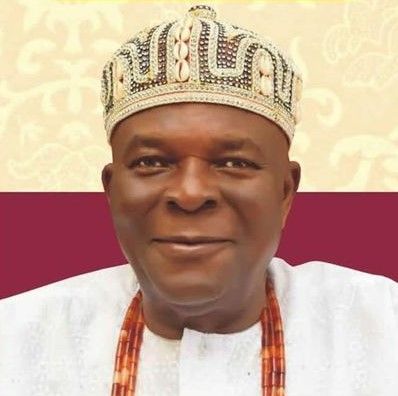
Amawbia Presidents General
Chief Agbata Ikele
1903 – 1938
Chief Chiedozie-Agbanya
Chief Herbert Ekemezie Nwalusi
Chief Robert C. Orji
1950-1962
Bartram Enuma-Oguejiofor
1963-1973
Nze Bernard Nwana
1973-1974
Amawbia Age Grades
Ulomma or Umuatu
1854 -1859
Udoabagu or Agbudu
1860 – 1865
Umuofia
1866 – 1871
Umuenyi
1872 – 1877
Amobi or Ochookwu
1878 – 1883
Osingo
1884 – 1889
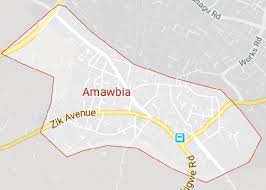
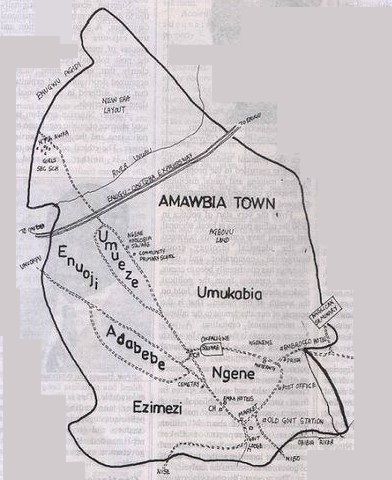
It was the only local marker established by the British Government for the entire Awka Division. Inspite of the grave depredation wrought on it during the period of 1967-1970 Nigerian Civil War, Eke Market Amawbia has retained its attractions and popularity as the nerve centre of daily commercial activities for many.
With the recent reconstruction work done by the former Obizi Local Government Area, the market has become an economic life wire for people far and near.
Economically, Amawbia people were mainly farmers, potters, hunters, builders and carves. Farming is done mainly at subsistence level producing such food and tree crops like bread fruit and oil palm, yam, cassava, cocoyam.
In political sphere all the six surviving villages in Amawbia work jointly in political activities.
The Amawbia Town Union is made up of representatives from the Council of elders, villages, age grades, and representatives of the people in urban centres.
Through the Union (ATU) a lot of development projects such as construction of a modern market, building of two secondary schools have been completed. Other projects like hospital, Civic centre are in the offing.
The people of Amawbia have a Traditional Ruler as the head of the town who represents a symbol of their Unity and Solidarity. He shall according to the town’s constitution “uphold the customs and traditions of Amawbia people and serve as a formidable force making for stability and moderation. “The Traditional Ruler is known and called the Okpaligwe 1 of Amawbia.
Amawbia is naturally blessed with good sources of water supply scattered almost all over the villages within the town. The streams are Okika in Ngene Village, Mbagu in Enuoji, Anana in Adabebe, Abba in Ezimezi and Ofiamazu which is owned by Umukabia Village. There are other important rivers like Ovunu, Obiba, Nwezi etc.
There streams serve economic purpose of supplying fine sand for builders.
